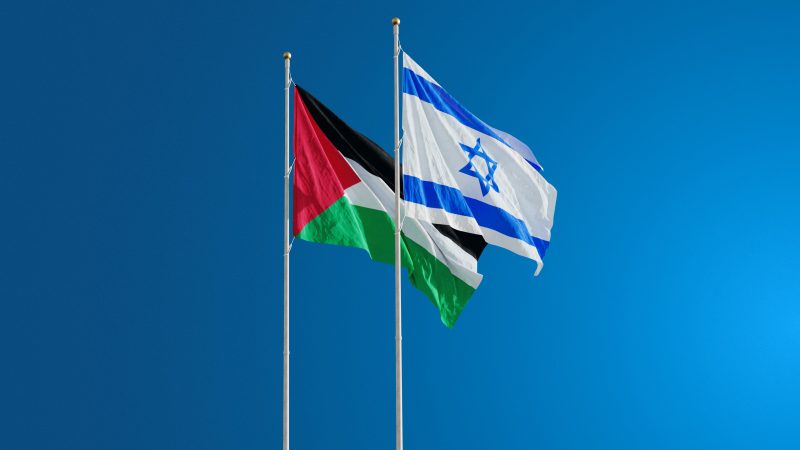
The plight of the people of Gaza is desperate and undeniable. Amid rampant unemployment, creaking infrastructure and overstretched services nearly two in three Gazans live below the poverty line. At Labour Friends of Israel, we’ve long attempted to increase awareness and propose concrete solutions to this tragic situation.
Today, we’re launching a new paper, featuring contributions from Ibrahim Eid Dalalsha of the Ramallah-based Horizon Centre for Political Studies and Media Outreach, Bar Ilan University’s Dr Toby Greene and LFI vice-chair Dame Diana Johnson. It seeks to examine both the roots of the problems in Gaza, while examining political, economic and security measures that might address them.
It seems like the situation in Gaza is frozen in a hopeless cycle of unending conflicts between Israel and Hamas. However, as Toby Greene outlines in his chapter, despite these tragic conflicts, recent years have also seen a modest degree of progress.
Last year, the outgoing Israeli Prime Minister, Yair Lapid, delivered a major address in which he recognised that Israel’s approach towards Gaza since terror group Hamas seized power in 2007 hasn’t worked. That view – shared by the country’s security establishment and broad swathe of Israeli society – led Lapid to propose a “large, multi-year process of economy for security”.
While the imminent change of government in Israel may complicate the picture, this follows a tacit understanding between Israel and Hamas – based around the formula of increased economic incentives in return for an end to terror attacks – that had begun to develop even before Benjamin Netanyahu left office in June last year. But, as our paper recognises, it is the twin, interlinked challenges of Hamas’ rule over Gaza and the separation of the coastal enclave from the West Bank that pose the central challenge.
As Greene writes: “Not only is this Islamist armed group ideologically committed to eliminate Israel through violent means, but it is considered a threat by Egypt, a mortal rival by the PA, and a terrorist group by many donor countries.” Moreover, as Dalalsha makes clear, “any resolution to the situation in Gaza cannot be realised by Palestinians only”. Instead, he rightly suggests, there needs to be “a regional and international-led strategy” with a two-state solution, an end to Hamas’ control of Gaza and reunification with the West Bank under the Palestinian Authority, as its goals.
Learning from past, failed attempts at Palestinian reconciliation, Dalalsha proposes the formation of a national unity government composed of non-affiliated, independent cabinet members, which would fully embrace international law and honour previous agreements between Israel and the PLO. The government, which would be temporary in nature, would be primarily focused on preparing for long-delayed parliamentary and presidential elections in the Palestinian territories.
Backed by key players, such as the US, Israel and Egypt, the process of reunification would be pursued alongside the pursuit of a permanent ceasefire between Israel and Hamas, such as that which the former UN Middle East peace process special envoy, Nickolay Mladenov, worked to broker with the assistance of Egypt.
Progress towards these twin goals would allow urgent humanitarian and reconstruction work to begin. In our publication Steps to a Two State Solution, published in October, LFI outlined a number of key measures which the international community should support.
First, tackle the humanitarian crisis with investment in infrastructure and development projects, including a credible monitoring system to ensure that reconstruction materials are not diverted to Hamas. At the centre of initial reconstruction efforts should be an emergency infrastructure plan that would see major investment by international donors in desalination and energy initiatives.
Second, increase work permits and exports – such as agricultural and textiles – to stimulate the Gazan economy and reduce unemployment. Over the long-term, as Israeli confidence in the security situation is strengthened, further measures, such as establishing an industrial park on the Gaza-Israel border, and the construction of a Gaza seaport, should be pursued.
Third, boost exit permits for Palestinian students wishing to study abroad, while enhancing individual security screening and simplifying the bureaucratic maze of visas involving the PA, Israel, Jordan, Egypt and the country in which they hope to study.
Fourth, permanently reopen the Rafah Crossing – a crucial route between Gaza and the outside world via Egypt – which has been repeatedly shuttered by Egypt since 2007.
Fifth, pressure Hamas to free two Israeli hostages – Avraham Abera Mengistu and Hisham al-Sayed – it is holding, as well as release the bodies of two Israeli soldiers – Hadar Goldin and Oron Shaul.
These measures are not comprehensive, but they are ambitious. They could make a real difference to the people of Gaza. And they would meet Israel’s legitimate security concerns. In short, they’re pro-Israel, pro-Palestine and pro-peace.




More from LabourList
‘Tackling poverty should be the legacy of Keir Starmer’s government’
‘The High Court judgment brings more uncertainty for the trans community’
‘There are good and bad businesses. Labour needs to be able to explain the difference’